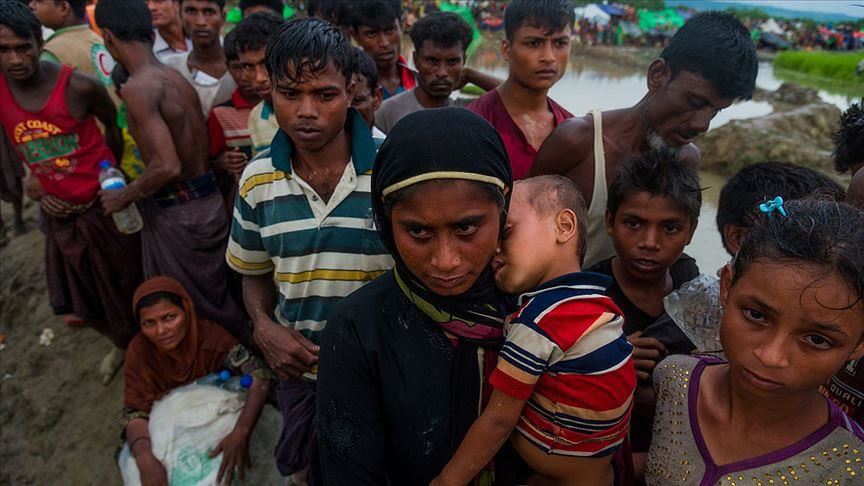‘National Verification Card barrier to Rohingya return’
Burma Human Rights Network says process aims to 'further marginalize the Rohingya'

ANKARA
A London-based rights group criticized Thursday Myanmar’s National Verification Card (NVC) process, calling it a “barrier to Rohingya return”.
The process aims to “further marginalize the Rohingya”, Burma Human Rights Network (BHRN) said in a report.
"It [NVC] ultimately enhances apartheid conditions in Rakhine State,” the group said.
The Myanmar government has long been pushing Rohingya to accept NVC, claiming that it will enable them with access to public services.
However, the Rohingya have repeatedly rejected it saying the move would exacerbate their sufferings as the NVC appears to identify them as Bengali, rejecting their original ethnic identity Rohingya.
The report -- titled NVC: A Barrier To Rohingya Repatriation -- was prepared in cooperation with Queen Mary University of London’s International State Crime Initiative.
“[It] disputes claims by the administration of Myanmar that the NVC is being used as a stepping stone to citizenship for the Rohingya,” read the report.
“The NVC has been in use for years as a tool to identify Rohingya as foreigners and they have not received any greater rights as a result,” Kyaw Win, BHRN executive director, said.
Win asked the international community to insist Myanmar to grant full citizenship and full rights for the Rohingya.
The BHRN statement also said that interviews done with Rohingya showed that Buddhist-majority authorities continued to “exert pressure on Rohingya to accept the NVC, either with threats or [face] denial of ‘incentives’”.
Persecuted people
The Rohingya, described by the UN as the world's most persecuted people, have faced heightened fears of attack since dozens were killed in communal violence in 2012.
According to Amnesty International, more than 750,000 Rohingya refugees, mostly women and children, have fled Myanmar and crossed to Bangladesh after Myanmar forces launched a crackdown on the minority Muslim community in August 2017, extending the figure of the persecuted people here more than 1.1 million.
Since Aug. 25, 2017, nearly 24,000 Rohingya Muslims have been killed by Myanmar’s state forces, according to a report by the Ontario International Development Agency (OIDA).
More than 34,000 Rohingya were also thrown into fires, while over 114,000 others were beaten, said the report, titled "Forced Migration of Rohingya: The Untold Experience".
Some 18,000 Rohingya women and girls were raped by Myanmar’s army and police and over 115,000 Rohingya homes were burned down and 113,000 others vandalized, it added.
Anadolu Agency website contains only a portion of the news stories offered to subscribers in the AA News Broadcasting System (HAS), and in summarized form. Please contact us for subscription options.

